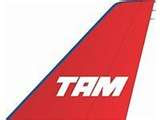 |
| Zamba Folk Dancers |
By Roy Heale
Many visitors to Buenos Aires are already familiar with the well known markets in San Telmo, Palermo, and Recoleta. But if you want a real South American experience, be sure to visit Mataderos to see the gauchos---Argentine cowboys---and their families, who come from the countryside with unique displays of horsemanship, handicrafts, live music, folk dancing, and delicious foods at the Feria de Mataderos. In 2011 this Fair of the Argentine popular handicrafts and traditions celebrates its 25th Anniversary.
This is one of the best-kept secrets in Buenos Aires, a weekly event that takes place during the spring, fall, and winter months on Sundays, from about 11am and until around 8pm---during January there is no Feria at all, and then in February and March they hold a down-sized version on Saturdays nights, starting at about 6pm.
 |
| Unique Vendors |
All the fun of the gaucho fair takes place in one of the poorest sectors of the capital. Mataderos, and its neighboring barrio of Liniers, were once where cattle traditionally arrived from around the country, were slaughtered, and then shipped out as meat to other parts of the capital. The name Mataderos literally means slaughterhouses – and the area is also often called Nueva Chicago, because of the cattle-killing heritage it shares with America's ‘Windy City’. For this reason there is an interesting mix of cultures including gauchos, porteños, plus migrant workers from Bolivia and Paraguay. The fair represents this colorful combination of traditions, dancing, and handicrafts.
To get to the fair from other parts of Buenos Aires is about a 45-minute-plus adventurous bus ride on one of the following colectivos: 55, 63, 80, 92, 117, 126, 141, 155, and 180. Of these, the 55 and the 92 are the ones that bring you the closest, with the others you may have to walk a little bit. Just ask the bus driver to let you off at the fair (if you are following your map, with the 55 and 92 buses, the exact intersection you need to get off at is Av. Directorio and Av. Lisandro de la Torre).
 |
| Inside the Museum Criollo de los Corrales |
Once you have arrived you can spend a few hours taking in the gaucho culture by watching the locals perform their folk dances known as zambas, accompanied by live musicians on a nearby outdoor stage. The zamba---not to be confused with the extremely different Brazilian samba---is a pleasure to watch. It is danced in pairs, a staged routine of flirtation in which the man and the woman dance toward each other and then quickly whirl away, waving scarves or handkerchiefs in flirtatious gestures. The dancers wear traditional Argentine costumes from the countryside, often in bright colors. When the men break into rhythmic step dances---which is similar to tap dancing with gaucho boots--- it is very impressive.
 |
| Stage Entertainment |
With the live band playing folk music on accordions, traditional bombo legüero drums, folk guitars, and vocals, this is a true fiesta, a street party, and people might grab you by the shoulder and laughingly try to pull you into their dancing circle. Participation is the name of the game here and you will feel the friendly Argentine spirit instantly.
Some of the best local Argentine food specialities are available at the outdoor parillas and vendor's booths. Try the BBQ beef or chorizo (sausage) on a bun, fresh fruits, empanadas, and more! Plus the market vendors offer a wide selection of cheeses, meats, wines, pickles, and local produce at low prices.
 |
| Traditional Meats Cooking on a Parilla |
Street vendors proffer plenty of local handicrafts, and often these will be some of the best deals in Buenos Aires. Specialities of the Mataderos fair are leather goods, stone and silver jewelry, novelties and good-luck charms molded from clay or other natural materials, key chains, wind chimes, and unique items that make great souvenirs or gifts. Usually the price the seller gives you is what you are expected to pay, although if your Spanish is good bargaining is a possibility.
Perhaps the most fun, interesting event at the Feria de Mataderos is the Carerra de Sortija---the “Race of the Ring”. This usually starts at about 3.30pm along a stretch of the road Av. Lisandro de la Torre, and it is when gauchos race their horses at breakneck speeds towards a small ring hung onto a raised metal frame overhead. Each time a gaucho is successful in spearing the ring, the crowds go wild.
So round-up some companions and spend a Sunday afternoon at the Feria de Mataderos to experience provincial Argentine culture and relaxation. Enjoy the colorful music and dance, wonder at the gaucho horsemanship, try some of the foods, take some awesome photos, and don’t forget to find a singular souvenir to take home as a memory.
For Further Information Visit: http://www.feriademataderos.com.ar
 |
| Local Handicrafts |

















